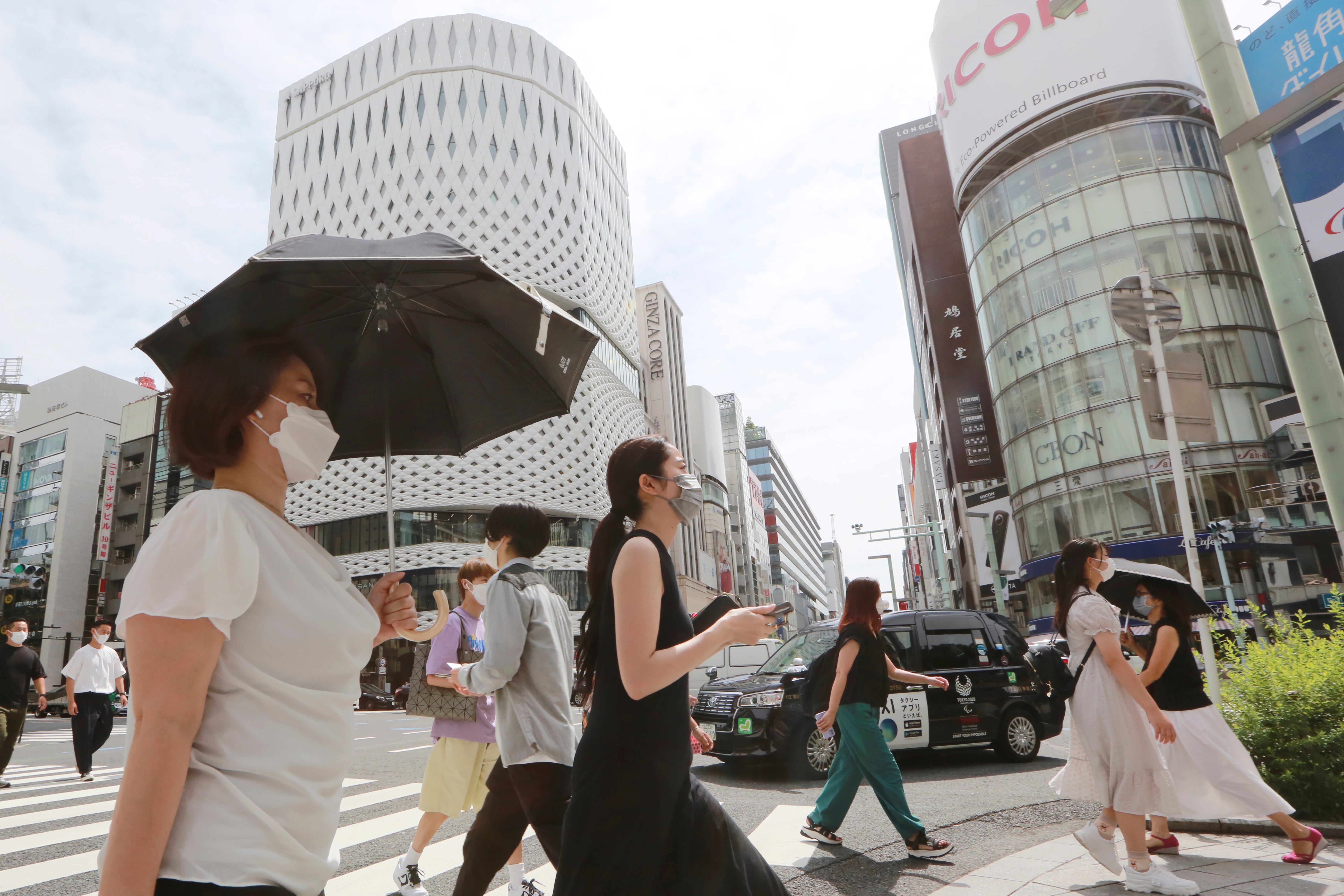Tokyo opens oxygen station for COVID patients as cases surge
Japan has opened a facility in Tokyo to provide oxygen for up to 130 coronavirus patients with mild symptoms

Your support helps us to tell the story
From reproductive rights to climate change to Big Tech, The Independent is on the ground when the story is developing. Whether it's investigating the financials of Elon Musk's pro-Trump PAC or producing our latest documentary, 'The A Word', which shines a light on the American women fighting for reproductive rights, we know how important it is to parse out the facts from the messaging.
At such a critical moment in US history, we need reporters on the ground. Your donation allows us to keep sending journalists to speak to both sides of the story.
The Independent is trusted by Americans across the entire political spectrum. And unlike many other quality news outlets, we choose not to lock Americans out of our reporting and analysis with paywalls. We believe quality journalism should be available to everyone, paid for by those who can afford it.
Your support makes all the difference.Japan on Monday opened a temporary facility in Tokyo to provide oxygen for up to 130 coronavirus patients with mild symptoms, as the capital's health care system grows severely strained.
The so-called “oxygen station” in Tokyo’s Shibuya district is aimed at people who develop a problem while isolating at home or waiting for hospital vacancies, and is staffed by three doctors and 25 nurses.
The idea is to temporarily treat mild cases with supplementary oxygen amid growing concerns that people may get sicker — and possibly start dying at home — in the absence of medical attention.
Tokyo has been under emergency measures for the majority of the year, most recently since July 12. But new daily cases have increased more than tenfold since then to about 5,000 in Tokyo and 25,000 nationwide, quickly filling up hospital beds and forcing many people to recover at home, some of whom require supplemental oxygen.
As of Monday, nearly 40,000 patients in Tokyo are recovering at home or in hotels, compared to about 4,000 hospitalizations. A growing number of patients spend hours on ambulances trying to find hospitals. Around 15,600 people have died since the pandemic began.
Although Japan has far fewer cases than many other countries, the wealthy nation’s pandemic response is near collapse. Only a small percentage of hospitals are taking virus patients, either for financial reasons or because they lack the capability to treat infections diseases, experts say.
The Tokyo metropolitan government plans to add 110 more beds with oxygen at prefectural-run hospitals by the end of August, while also preparing to set up a makeshift hospitals that can provide antibody cocktail infusions for those in the early stages of infection, officials said.
But experts say oxygen only provides temporary relief and that the government should quickly build a makeshift COVID-19 hospital.
Prime Minister Yoshihide Suga’s government faced criticism for insisting on holding the Tokyo Olympics and Paralympics despite strong opposition from the public amid the rising infections led by the more infectious delta variant.
On Friday, Japan expanded emergency measures to two-thirds of the country until Sept. 12 and is considering adding more areas.
On Monday, Tokyo Gov. Yuriko Koike and Health Minister Norihisa Tamura met and jointly issued a firm request to all hospitals in the Japanese capital to take in as many patients as possible, or dispatch medical workers to assist at temporary oxygen stations or other facilities.
Koike urged Tokyo hospitals to consider postponing non-urgent surgical operations or curtailing ordinary treatment “to maximize hospitalization.” Tamura said there's limited capacity for those in serious condition nationwide. “We need everyone’s help to overcome this difficult situation,” Tamura said.